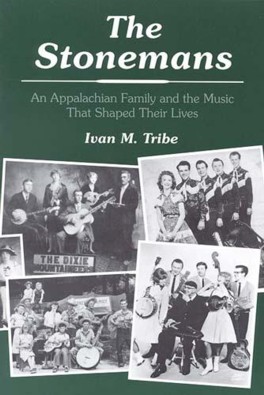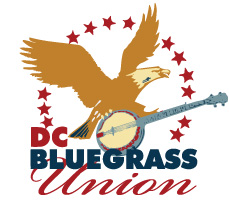The Stonemans
From Ivan M. Tribe – www.countryworks.com
 The Stonemans from Iron Ridge, Va., were “born” musicians; how could they be otherwise with recording artist Ernest Van “Pop” Stoneman for a father and fiddler Hattie Frost Stoneman for a mother?
The Stonemans from Iron Ridge, Va., were “born” musicians; how could they be otherwise with recording artist Ernest Van “Pop” Stoneman for a father and fiddler Hattie Frost Stoneman for a mother?
For years, “Pop” Stoneman (1893-1968) supplemented his income as a carpenter with musical performances. Between 1924 and 1929, he recorded over 200 songs for various labels including his 1924 hit, “The Sinking of the Titanic.”
In 1927, while under contract with the Victor Talking Machine Company, Pop convinced Victor talent scout Ralph Peer to come to Bristol, Tennessee, to audition local talent. This session introduced the world to Jimmie Rodgers and the Carter Family.
In 1930, Pop and Hattie’s children began performing and the family moved to Washington, D.C., to find work. Because there were so many of them, (twenty-three in all) and because the music was varied, the children would break up into smaller bands. Often five or six of these groups would be traveling the country at one time. In addition to making hundreds of professional recordings, the Stonemans traveled across North America and Europe, appeared on The Jimmy Dean TV Variety Show, participated in movies and even hosted their own television program, Those Stonemans.
Patsy, Donna, and Jim Stoneman were on hand along with Doc Watson, Mike Seeger, and members of the Carter Family for a concert commemorating the 70th anniversary of the Bristol Sessions on Sept. 5,1997.
Ernest Stoneman ranked among the prominent recording artists of Country music’s first commercial decade. Born near what would later become Galax, Virginia, Stoneman was left motherless at age three and was raised by his father and three musically-inclined cousins who taught him the instrumental and vocal traditions of Blue Ridge mountain culture. When he married Hattie Frost in November 1918, he entered another musically-involved family.
Ernest worked at a variety of jobs, mostly carpentry, and played music for his own enjoyment and that of his neighbors, but when he heard a Henry Whitter record in 1924, he determined to better it and changed his life as well. Stoneman went to New York and cut two songs for the OKeh label. Ralph Peer directed him through several sessions for Okeh and Victor and freelanced on other labels as well. In 1926, he added family musicians to his group for a full string band sound.
In July and August 1927, Stoneman helped Peer conduct the legendary Bristol sessions that led to the discovery of the Carter Family and Jimmie Rodgers. He continued to be active in recording through 1929.
Falling on hard times during the depression, the Stonemans and their nine surviving children moved to the Washington, D.C. area in 1932 after losing their home and most of their possessions. There they had four more children and struggled through dire poverty, with Ernest taking whatever work he could find and trying to revive his musical career.
In 1941, Ernest bought a lot in Carmody Hills, Maryland where he built a shack for the family and eventually obtained a more or less regular job at the Naval Gun Factory. In 1947, the Stoneman Family won a talent contest at Constitution Hall that gave them six months’ exposure on local television. In 1956, “Pop” won $10,000 on the NBC-TV quiz show The Big Surprise and sang on the show as well. That same year, the Blue Grass Champs, a group composed largely of his children, were winners on the CBS-TV program Arthur Godfrey’s Talent Scouts, and Mike Seeger recorded “Pop” and Hattie for Folkways.
Ernest retired from labor and the Champs went full-time to become the Stonemans. They did albums for Starday in 1962 and 1963 and in 1964, went to Texas and California, cutting an album for World Pacific, playing at Disneyland, on some network shows and at several Folk festivals.
In 1965, they went to Nashville, where they got a contract with MGM Records and started a syndicated TV show. They received CMA’s “Vocal Group of the Year” in 1967.
